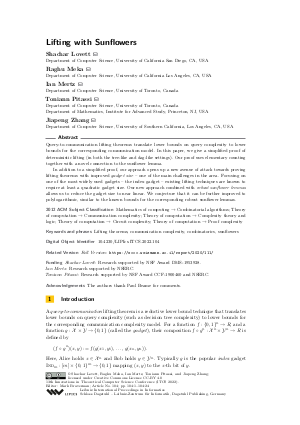LIPIcs.ITCS.2022.104.pdf
- Filesize: 0.94 MB
- 24 pages

 Creative Commons Attribution 4.0 International license
Creative Commons Attribution 4.0 International license



































Feedback for Dagstuhl Publishing